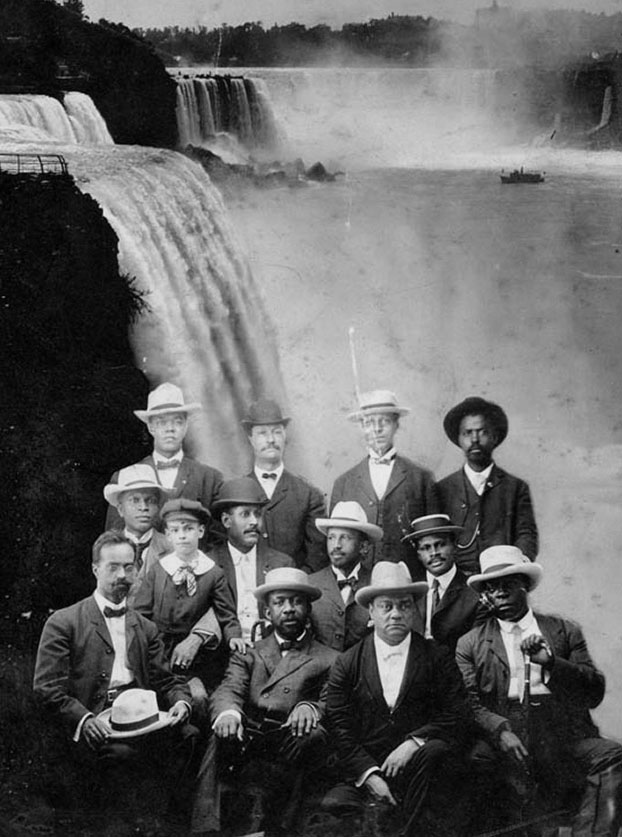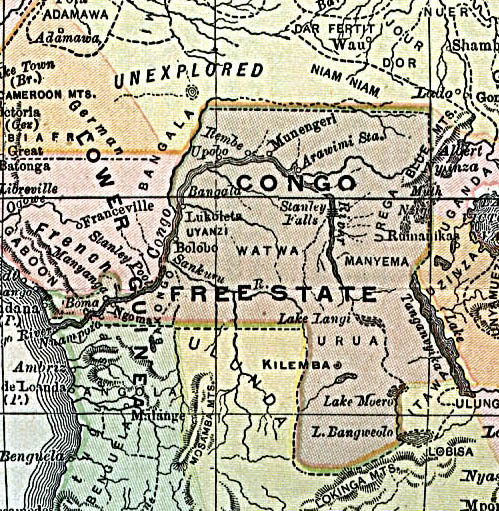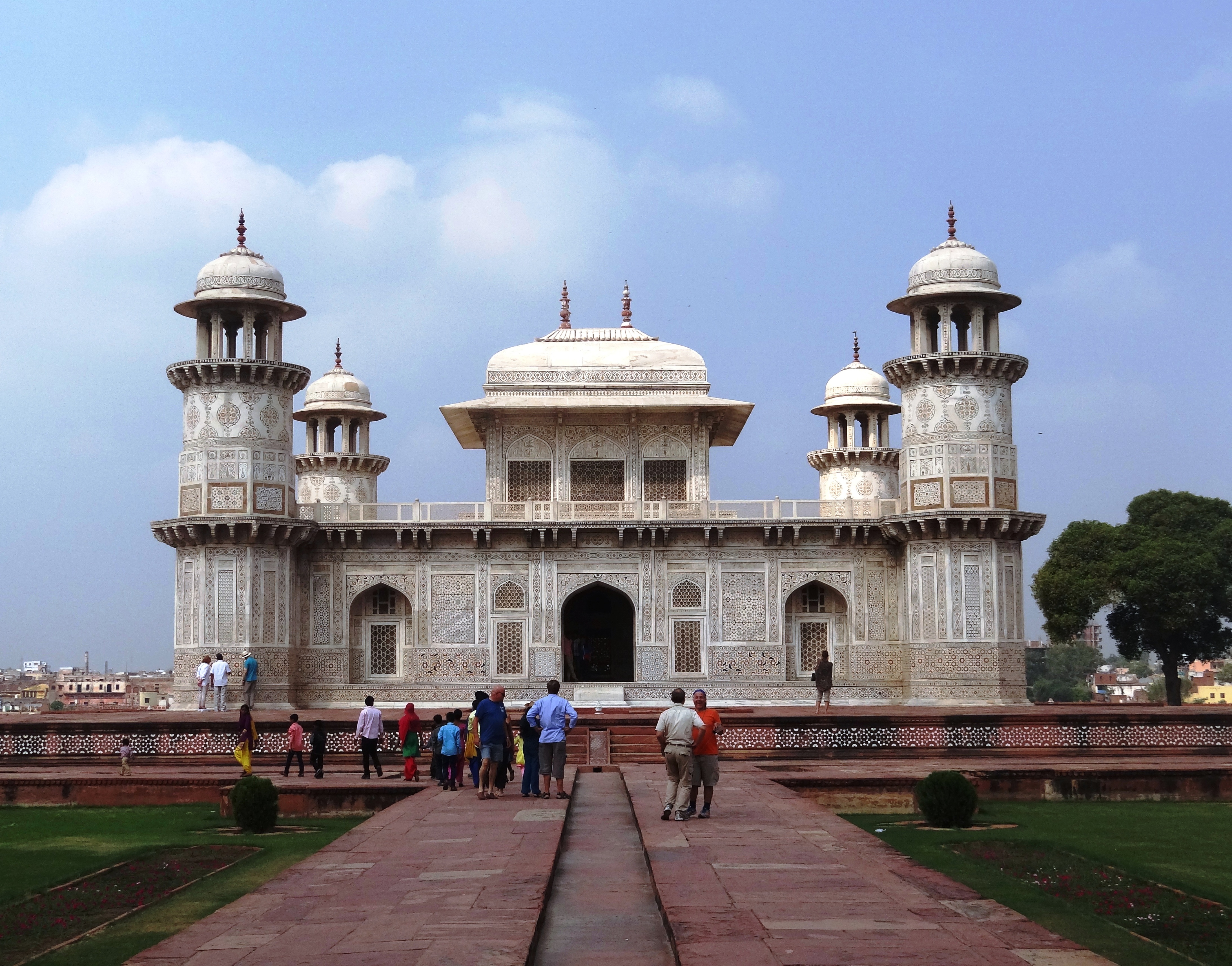|
John Wesley Gilbert
John Wesley Gilbert (July 6, 1863 – November 18, 1923) was an American archaeologist, educator, and Methodist missionary to the Congo. Gilbert was the first graduate of Paine College, its first African-American professor, and the first African-American to receive an advanced degree from Brown University. Early life Gilbert was born to slaves in Hephzibah, Georgia, though he grew up in nearby Augusta. He was named after John Wesley, the founder of Methodism. Until he left Georgia, Gilbert "spent half the year on the farm and the other half in the public schools of the city of Augusta." After finishing public school, Gilbert enrolled in the Augusta Institute (later the Atlanta Baptist Seminary, a predecessor of Morehouse College). In 1884, he enrolled in the newly opened Paine Institute (later known as Paine College), which had been established as an "interracial" venture between the Methodist Episcopal Church, South (MECS) and the Colored Methodist Episcopal Church (CME). G ... [...More Info...] [...Related Items...] OR: [Wikipedia] [Google] [Baidu] |
Hephzibah, Georgia
Hephzibah () is a city in southern Richmond County, Georgia, Richmond County, in the United States, U.S. state of Georgia (U.S. state), Georgia. It is part of the Augusta metropolitan area. The population was 4,011 at the 2010 census. ''Hephzibah'' is a poetic name used in the Book of Isaiah (Isaiah 62#Verse 4, 62:4) to refer to Jerusalem, meaning "My delight is in Her." History Hephzibah was originally named Brothersville, in honor of three brothers who settled near one another. In October 1860, a Baptist seminary was established in Brothersville by a group of Appling, Georgia, Appling residents. They established the Hephzibah Baptist Church in 1862. The prominence of these new religious institutions in the area swayed the state of Georgia to rename the town Hephzibah in 1870. In 1909, Walter A. Clark published a book of local history, named ''A Lost Arcadia - The Story of My Old Community,'' detailing the earliest days of Hephzibah. In 1996 the governments of the city of Augusta ... [...More Info...] [...Related Items...] OR: [Wikipedia] [Google] [Baidu] |
Athens, Greece
Athens ( ; el, Αθήνα, Athína ; grc, Ἀθῆναι, Athênai (pl.) ) is both the capital and largest city of Greece. With a population close to four million, it is also the seventh largest city in the European Union. Athens dominates and is the capital of the Attica region and is one of the world's oldest cities, with its recorded history spanning over 3,400 years and its earliest human presence beginning somewhere between the 11th and 7th millennia BC. Classical Athens was a powerful city-state. It was a centre for the arts, learning and philosophy, and the home of Plato's Academy and Aristotle's Lyceum. It is widely referred to as the cradle of Western civilization and the birthplace of democracy, largely because of its cultural and political influence on the European continent—particularly Ancient Rome. In modern times, Athens is a large cosmopolitan metropolis and central to economic, financial, industrial, maritime, political and cultural life in Greece. In 2 ... [...More Info...] [...Related Items...] OR: [Wikipedia] [Google] [Baidu] |
Niagara Movement
The Niagara Movement (NM) was a black civil rights organization founded in 1905 by a group of activists—many of whom were among the vanguard of African-American lawyers in the United States—led by W. E. B. Du Bois and William Monroe Trotter. It was named for the "mighty current" of change the group wanted to effect and took Niagara Falls as its symbol. The group did not meet in Niagara Falls, New York, but planned its first conference for nearby Buffalo (at the last minute, to avoid disruptions, moved across the Niagara River to Fort Erie, Ontario, Canada). The Niagara Movement was organized to oppose racial segregation and disenfranchisement. Its members felt "unmanly" the policy of accommodation and conciliation, without voting rights, promoted by Booker T. Washington. Background During the Reconstruction Era that followed the American Civil War, African Americans had an unprecedented level of civil freedom and civic participation. In the South, for the first time the for ... [...More Info...] [...Related Items...] OR: [Wikipedia] [Google] [Baidu] |
John Hope (educator)
John Hope (June 2, 1868 – February 22, 1936), born in Augusta, Georgia, was an American educator and political activist, the first African-descended president of both Morehouse College in 1906 and of Atlanta University in 1929, where he worked to develop graduate programs. Both are historically Black colleges. Determined to finish his education after having had to leave school to help support his family after his father's death, Hope went North: graduating from Worcester Academy and Brown University. He returned to the South to teach, and in 1906 became the first African American president of Atlanta Baptist College. He served as president until his death in 1936. After the college's affiliation with Atlanta University, Hope was selected in 1929 as the university's first African-American president; he worked to develop that institution's graduate programs to ensure higher education for Blacks. Hope was active in national civil rights organizations, including the Niagara Moveme ... [...More Info...] [...Related Items...] OR: [Wikipedia] [Google] [Baidu] |
Atrocities In The Congo Free State
In the period from 1885 to 1908, many well-documented atrocities were perpetrated in the Congo Free State (today the Democratic Republic of the Congo) which, at the time, was a State (polity), state under the absolute rule of Leopold II of Belgium, King Leopold II of the Belgians. These atrocities were particularly associated with the labour policies used to collect natural rubber for export. Together with epidemic disease, famine, and a falling birth rate caused by these disruptions, the atrocities contributed to a sharp decline in the Congolese population. The magnitude of the population fall over the period is disputed, with modern estimates ranging from 1.5 million to 13 million. At the Berlin Conference of 1884–1885, the European powers allocated most of the Congo Basin region to a supposedly philanthropic organisation run by Leopold II, who had long held ambitions for colonial expansion. The territory under Leopold's control exceeded ; amid financial problems, it was dir ... [...More Info...] [...Related Items...] OR: [Wikipedia] [Google] [Baidu] |
Patrice Lumumba
Patrice Émery Lumumba (; 2 July 1925 – 17 January 1961) was a Congolese politician and independence leader who served as the first prime minister of the Democratic Republic of the Congo (then known as the Republic of the Congo) from June until September 1960. A member of the Congolese National Movement (MNC), he led the MNC from 1958 until his execution in January 1961. Ideologically an African nationalist and pan-Africanist, he played a significant role in the transformation of the Congo from a colony of Belgium into an independent republic. Shortly after Congolese independence in 1960, a mutiny broke out in the army, marking the beginning of the Congo Crisis. Lumumba appealed to the United States and the United Nations for help to suppress the Belgian-supported Katangan secessionists led by Moïse Tshombe. Both refused, due to suspicions among the Western world that Lumumba secretly held pro-communist views. These suspicions deepened when Lumumba turned to the Soviet ... [...More Info...] [...Related Items...] OR: [Wikipedia] [Google] [Baidu] |
Tetela Language
Tetela (Otetela, Kitetela, Kikitatela), also ''Sungu'', is a Bantu language of northern Kasai-Oriental Province, Democratic Republic of the Congo. It is spoken by the Tetela people. Noun classes Like other Bantu languages, Tetela grammar In linguistics, the grammar of a natural language is its set of structure, structural constraints on speakers' or writers' composition of clause (linguistics), clauses, phrases, and words. The term can also refer to the study of such constraint ... arranges nouns into a number of classes. The ancestral system had 22 classes (counting singular and plural as distinct according to the Meinhof system), with most Bantu languages sharing at least ten of them. :: References Relevant literature * Elysee Meta Okubo. 2016. ''A COLLECTION OF 100 TETELA PROVERBS.'Proverb website* Mukanga, Ndjeka Elizabeth, Empenge Albert Shefu, Ambaye Albertine Tshefu. 2020. ''Great Collection of Tetela Proverbs on the African Wisdom''. Pittsburgh: Dorrance Publi ... [...More Info...] [...Related Items...] OR: [Wikipedia] [Google] [Baidu] |
Walter Russell Lambuth
Walter Russell Lambuth (November 10, 1854 – September 26, 1921) was a Chinese-born American Christian bishop who worked as a missionary establishing schools and hospitals in China, Korea and Japan in the 1880s. Birth and family Born in Shanghai, China as the eldest son of James William Lambuth and Mary Isabella McClellan, he was sent to his relatives in Tennessee and Mississippi for his early education. Walter's parents were pioneering missionaries in China. Together they also founded the mission work of the Methodist Episcopal Church, South in Japan. Walter's grandfather had been a Preacher in the Mississippi Annual Conference. Walter's great-grandfather, the Rev. William Lambuth, was a Preacher in the Holston Annual Conference (admitted in 1795). Education Walter graduated from Emory and Henry College in 1875, and later received theology and medical degrees from Vanderbilt University. Ordination and Ministry Bishop W. M. Wrightman appointed Walter R. Lambuth as the fir ... [...More Info...] [...Related Items...] OR: [Wikipedia] [Google] [Baidu] |
Greek Language
Greek ( el, label=Modern Greek, Ελληνικά, Elliniká, ; grc, Ἑλληνική, Hellēnikḗ) is an independent branch of the Indo-European family of languages, native to Greece, Cyprus, southern Italy (Calabria and Salento), southern Albania, and other regions of the Balkans, the Black Sea coast, Asia Minor, and the Eastern Mediterranean. It has the longest documented history of any Indo-European language, spanning at least 3,400 years of written records. Its writing system is the Greek alphabet, which has been used for approximately 2,800 years; previously, Greek was recorded in writing systems such as Linear B and the Cypriot syllabary. The alphabet arose from the Phoenician script and was in turn the basis of the Latin, Cyrillic, Armenian, Coptic, Gothic, and many other writing systems. The Greek language holds a very important place in the history of the Western world. Beginning with the epics of Homer, ancient Greek literature includes many works of lasting impo ... [...More Info...] [...Related Items...] OR: [Wikipedia] [Google] [Baidu] |
American Philological Association
The Society for Classical Studies (SCS), formerly known as the American Philological Association (APA) is a non-profit North American scholarly organization devoted to all aspects of Greek and Roman civilization founded in 1869. It is the preeminent association in the field and publishes a journal, ''Transactions of the American Philological Association'' (TAPA). The APA is currently based at the University of Pennsylvania, in Philadelphia. History The APA was inaugurated by William D. Whitney, of Yale, at Poughkeepsie, New York, in 1869 as an outgrowth of the Classical Section of the Oriental Society. Of the 151 inaugural members, just 8 were women, including Alice Robinson Boise Wood, the first woman to study (informally) at the University of Michigan and to graduate with a B.A. from the Old University of Chicago. Originally its members studied a great variety of texts and languages, but as disciplines such as linguistics and modern languages have created their own societies, ... [...More Info...] [...Related Items...] OR: [Wikipedia] [Google] [Baidu] |
Tomb Of Aristotle Excavation
A tomb ( grc-gre, τύμβος ''tumbos'') is a repository for the remains of the dead. It is generally any structurally enclosed interment space or burial chamber, of varying sizes. Placing a corpse into a tomb can be called ''immurement'', and is a method of final disposition, as an alternative to cremation or burial. Overview The word is used in a broad sense to encompass a number of such types of places of interment or, occasionally, burial, including: * Architectural shrines – in Christianity, an architectural shrine above a saint's first place of burial, as opposed to a similar shrine on which stands a reliquary or feretory into which the saint's remains have been transferred * Burial vault – a stone or brick-lined underground space for multiple burials, originally vaulted, often privately owned for specific family groups; usually beneath a religious building such as a church ** Cemetery ** Churchyard * Catacombs * Chamber tomb * Charnel house * Church monum ... [...More Info...] [...Related Items...] OR: [Wikipedia] [Google] [Baidu] |






.jpg)

